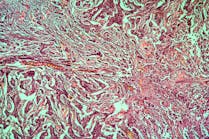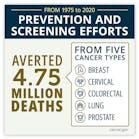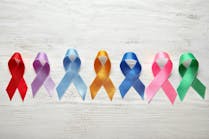Chimeric antigen receptor T-cell therapy, or CAR T, is a breakthrough treatment for patients with certain types of blood cancers. The cellular therapy uses a patient’s own immune cells that are reengineered to better seek out and destroy cancer cells. The single infusion treatment is approved for patients who have relapsed after two or more types of therapy but results from the ZUMA-7 clinical trial show lymphoma patients can benefit from receiving the CAR T product axicabtagene ciloleucel (Yescarta) sooner. The findings were published by the New England Journal of Medicine.
ZUMA-7 is a nationwide, multicenter phase 3 trial evaluating Yescarta as a second-line therapy for patients with diffuse large B-cell lymphoma. In total, 359 patients were enrolled and randomized into two arms: Yescarta or standard of care. Patients in the Yescarta arm underwent apheresis to have CAR T cells produced for therapy. Those in the standard of care arm were given chemotherapy with the goal of getting them well enough for an autologous stem cell transplant.
The two-year follow-up data shows that median event-free survival, meaning no cancer progression or need for additional treatment, was 8.3 months in the Yescarta arm compared to two months with standard of care. Also after 24 months, the estimates for ongoing remission with no need for additional therapy were 41% of those receiving Yescarta and 16% of those receiving standard of care.
Large B-cell lymphoma is the most common type of non-Hodgkin lymphoma. Roughly 40% of patients will relapse and require a second-line therapy. Locke says providing CAR T as an option sooner for this patient population can reduce exposure to toxic chemotherapy agents and provide better outcomes and a quicker recovery.





